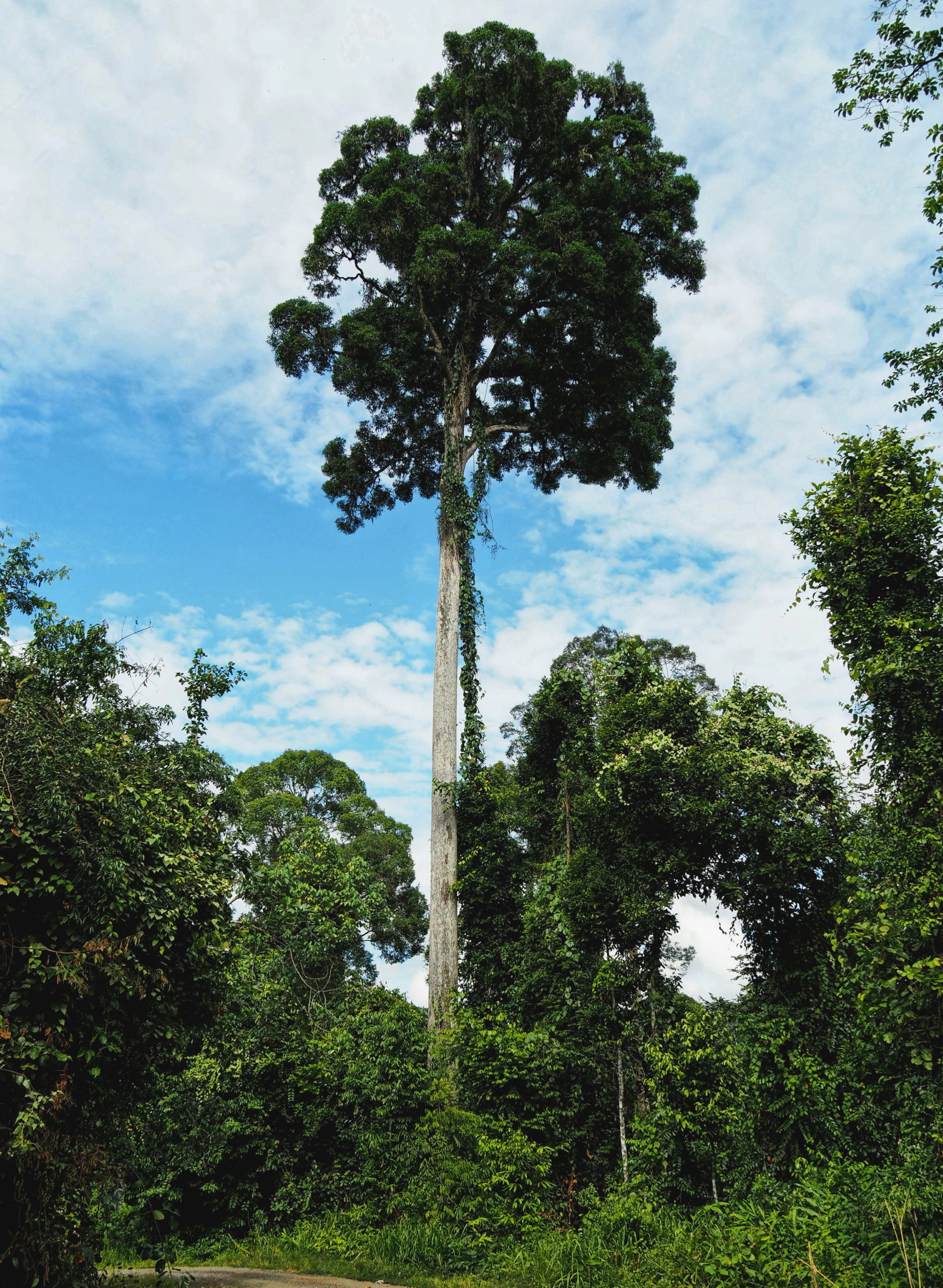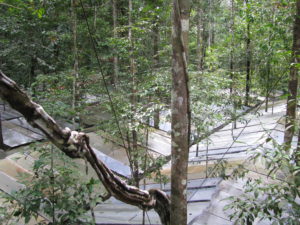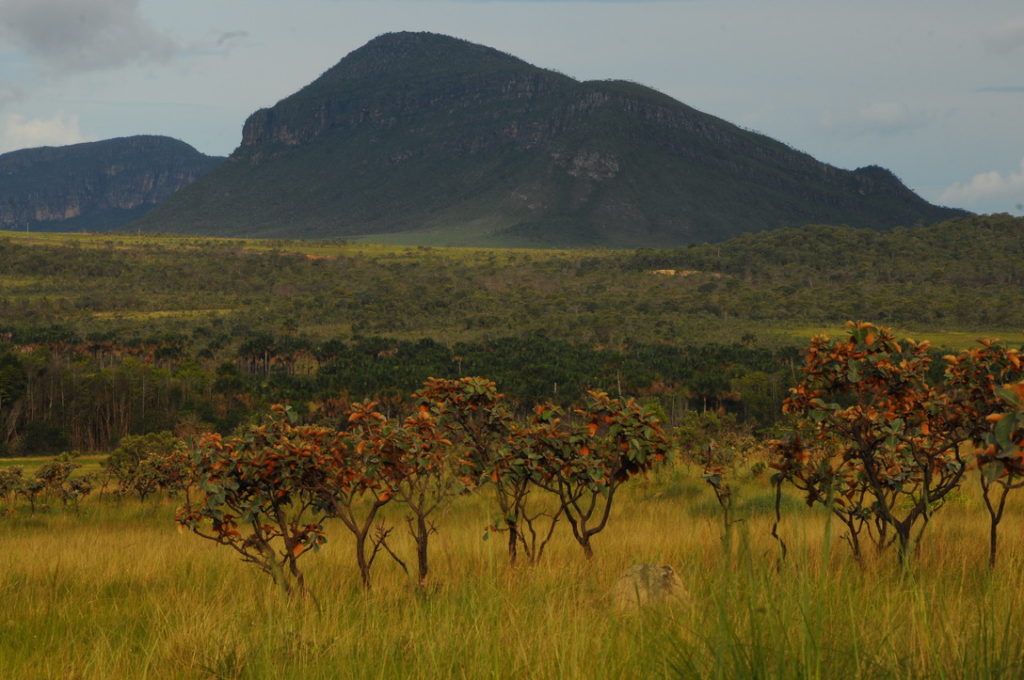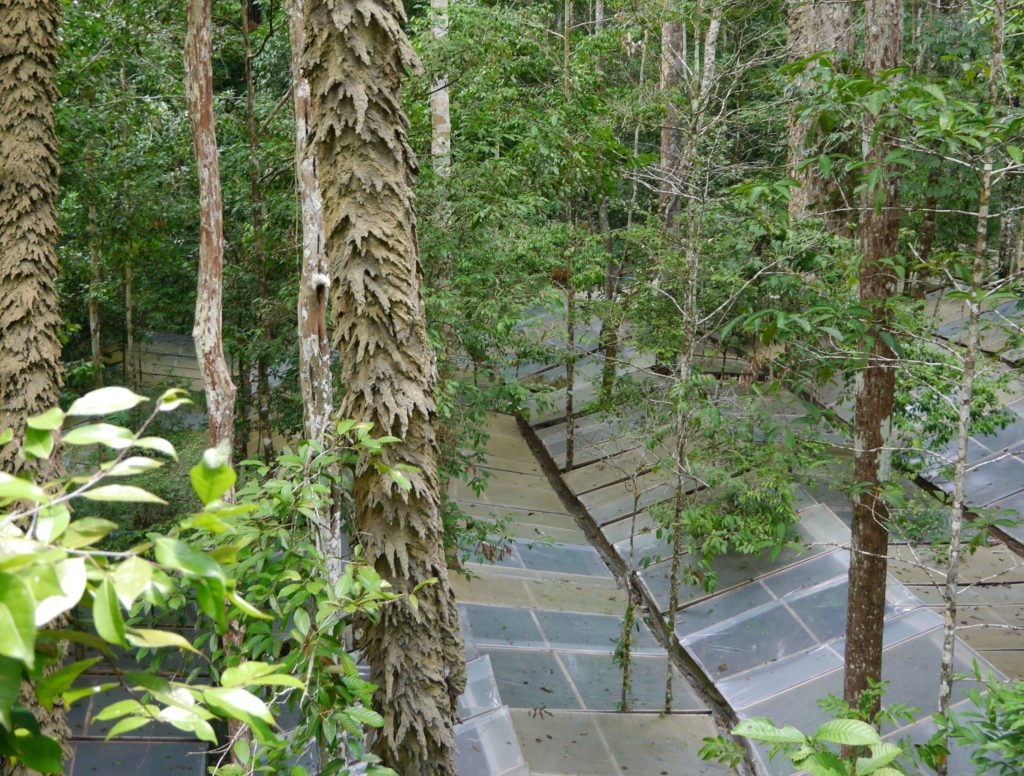Adventures of an Ecologist
Adventures of an Ecologist
Principle Investigator – NERC Grant. Using plant hydraulic scaling to predict the drought vulnerability of the world’s tallest tropical trees, £800k (2021-2025)
The main focus of this research is to discover how the world’s tallest tropical trees adjust their hydraulic systems to overcome the high resistance associated with moving water over very large distances and against gravity. We aim to identify the key mechanisms through which trees adjust leaf and stem hydraulic traits with height, including resistance to embolism (formation of air bubbles) and water transport efficiency. This will enable us to understand the hydraulic limitations imposed and the vulnerability of trees to future increases in drought frequency and intensity. Data on vertical changes in traits are, however, rare globally and do not exist for tall tropical trees, severely limiting current capacity to predict the impact of future drought stress. This project will generate these data for the tallest tropical trees in the world, contrasting trees from a more seasonal, drier climate in Brazil, with a wetter aseasonal climate in Borneo. Combining state-of-the-art structural and process models with novel observational data, we will generate a step-change in current understanding of the water transport limits of the world’s tallest tropical trees and the impacts of these limits on the carbon and water cycles of tropical forests. The grant runs from August 2019 until April 2021 with Exeter’s Dr Cleiton Eller and Dr. Paulo Bittencourt both being employed as research CoIs on the project. The project includes a large inter-disciplinary team from across SE Asia, Brazil and Europe, and the PDRA on the project will be Research CoI Dr. Paulo Bittencourt.


Principle Investigator – Newton Brazil CSSP grant. Ecosystem responses to extremes– field experiments to support model development, £188k (2022-2023)
The grant will extend my existing research on tropical forest drought responses at the world’s longest running drought rainforest experiment site in Caxiuana NE Brazil, in collaboration with the University of Edinburgh. The grant will build a new data-set for calibrating water stress responses in dynamic global vegetation models. Alongside this this grant will support further developments of our new plant hydraulic sub-model for JULES (SOX) and a new NSC sub-model for JULES. The grant will employ Dr Patricia de Britto Costa as the research CoIs on the project.
Principle Investigator – Joint NERC standard and FAPESP grant – Restoring Neotropical dry ecosystems – is plant functional composition the key to success? £820k (NERC, UK), R$2.6 million (~£500k , FAPESP Brazil) – (2019-2023).
Despite their global importance and poor protection, tropical dry forests and savannas (TDFS) have been studied far less than other tropical ecosystems, particularly TDFS areas undergoing restoration. We aim to address this recently identified knowledge gap with the aim of improving the success of TDFS restoration. This project will provide the first assessment of the resilience of existing and restored TDFS to changing climate and climate extremes, through undertaking a comprehensive, community scale assessment of traits which determine plant water-use, carbon production and nutrient-use strategies across restored TDFS sites. These sites are located within two of Brazil’s largest restoration experiment in savanna and dry forest. The information generated in this project will create a step-change in our current understanding of the function of restored and natural TDFS sites, facilitating development of state-of-the art vegetation models to improve climate prediction and the creation of new restoration policy through integrating with key stakeholders responsible for the creation and implementation of restoration strategies for Brazil. The key aims of the project are:
Aim 1: Evaluate ecosystem function in TDFS sites restored using different strategies.
Aim 2: Understand the pressures on TDFS from climate-change and climate extremes.
Aim 3: Improve policy and restoration strategies for the restoration of, and long-term resilience of TDFS in collaboration with the Brazilian government.


Principle Investigator – NERC Independent Research Fellowship – Including Tree Diversity in Predictions of Tropical Forest Drought Responses, £628k (2016-2021)
Prolonged reductions in soil moisture and acute drought events are predicted to be a key threat to tropical forest in the coming century. The fate of tropical forests if exposed to drought in the future will depend on which types of trees die and which can survive all the way from seedling to adult. Working at the world’s longest running tropical forest drought experiment site in Para state, Brazil, I have been exploring how tree size, light-exposure and taxonomy combine to influence plant hydraulic and carbon cycling traits. The trees studied in this experiment are unique as they exist on a 1ha plot which has received a 50% reductions in rainfall since 2002, implemented by a structure plastic panels and runnels 1-2m high channelling the water away from them. These trees provide the unique opportunity to study what combination of plant traits make certain trees more prone to experiencing drought stress than others. In collaboration with other researchers at the University of Exeter and the Met Office I am then using this information to develop more sophisticated ways of modelling tropical forest responses to future drought events using the UK’s leading land-surface model, JULES. Ultimately this will lead to more accurate predictions of the climate-vegetation feedbacks which will take place of the tropics in the future.
Co-Investigator grants
NERC-NSF grant – Understanding drought and post-drought legacy effects in tropical forest. £800k (PI – Prof Patrick Meir 2022-2025)
NERC Urgency grant – Seeing the fruit for the trees in Borneo: responding to an unpredictable community-level fruiting event. £65,000 (PI- Prof. David Burslem 2020-2021)
NERC GPSF – FOR-RESTORE: A network for evidence-based tropical forest restoration, £100,000 (PI- Dr. Lindsay Banin, 2020-2022)
NERC standard grant- Lightning an invisible driver of tree mortality in the tropics. £800k (PI- Dr. Tim Hill, 2017-2022).
